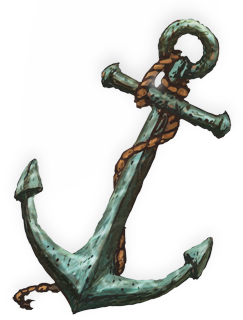Have you ever had a really bad boss?
I’m sure that if we all sat down and compared notes we could come up with some great stories. Bad bosses are what movies are made of. We love to hate them, and we all relate because we’ve all been there. We’ve all had at least one.
My “bad boss” story is actually rather boring. Her name was Karen.* She wasn’t BAD, per say, we just didn’t get along. She was good at her actual job, I think… she must have been, since she was promoted regularly and earned routine bonuses. Still, though, she was not a good boss for ME.
…and if we’re honest, that’s how it is, right? Conflict is not just about that one person you have it with, it’s about the dynamic between TWO. Both of you. A bad relationship isn’t just about one person, it’s about two people. My mom always used to say “It takes two to tango,” and she was right.
And Karen and I tangoed. A lot. Over the course of several years we had a couple big blowouts, some of them epic in tone and size.
One specific confrontation in particular comes to mind, a confrontation for which the mere memory makes steam roll out my ears.
I was elbows deep in my work (literally), I was under a serious time crunch, I was stressed out, hungry, tired, and worn thin. We were as deep into the shizzle as we could possibly get at that time, and it was THAT MOMENT my boss walked up to me because she needed something.
Karen (standing off to the side and clearing her throat): “HmUHM.”
Me (busy): “…..”
I didn’t even look up. I WAS BUSY. Can you not see how busy I am? I barely have time to stop and breathe, I FOR SURE don’t have time to stop and pee, but you want me to stop and have a conversation. NOT GOING TO HAPPEN.
Karen: “Erin, I’m wondering what you think about how you’re using your time. What do you think you should be doing right now?”
Me (STILL busy, and now incredibly pissed off): “??!!!!?!” (I took a deeeeep breath, looked up from what I was doing without stopping, and answered her.) “Um, I think I should be doing exactly what I’m doing. If I didn’t think I should be doing this, I’d stop.”
There’s a common tactic among leaders called “guided discovery.” It’s the process of using questions like bread crumbs, the process of using a series of questions to lead the person you’re teaching to an understanding that they cannot find on their own.
I HATE IT.
I am a direct person, a “get to the point immediately and make it a clear one” kind of person with regard to authority. I hate “guided” ANYTHING, let alone “discovery,” and she was using it, and it was driving me batshit crazy. And I KNEW she was using it, because I’m not dumb and because I’ve been taught to use it myself, and I was already irritated, and her presence was causing MORE irritation because I KNEW she wanted something but wouldn’t just ask.
STEAM OUT EARS.
She tried again. In the same way, with the same result. “What is the most important thing we’re working on right now?”
I’d had enough. My stress and irritation was turning me from “cranky” to “bitch on wheels,” and the transformation was FAST. I slammed my hands palm-down on the table, backed up one full step, turned my head to her, looked her square in the face, and asked her outright.
“WHAT DO YOU WANT FROM ME. Why don’t you tell me directly what you want me to do, and I’ll go do it. We’re WASTING TIME.”
With a stutter and stammer and flare of irritation (Can you blame her? I was her subordinate and I ripped her a new one.), she gave me orders and I followed them.
After things calmed down and we’d had a break from the stress (and each other), we sat down to talk.
I told her how angry I was. I told her how “guided discovery” made me want to punch baby seals. I told her that in the heat of the moment, her digging for a specific answer was a waste of her time, a waste of my focus, an insult to my intelligence, and I perceived it as a form of dishonesty. “Just tell me what you want, don’t lead me around with indirect lies.” I told her that when we were fighting shoulder to shoulder in a deep trench, her talking about my feelings and thoughts was BACKWARDS. I needed orders so I could efficiently follow them, I did not need a trail of breadcrumbs. Discernment and teaching can come later, after the job was done shooting at our heads.
In return, she told me that being direct was hard for her. She mentioned to me that my feelings were more important to her than the outcome of my efforts, and that if she did not feel close to me or that I was learning all the time she felt she was wasting her time. Discernment and teaching came first and ONLY, no matter WHO was shooting at our heads.
For her, THE FEELS and PROVIDING GUIDANCE were the most important parts of her job.
For me, THE PRODUCTIVE OUTCOME and HONEST EXPRESSION OF INTENTION were the most important parts of the job.
When dealing with other people, what character trait matters most to you? What type of person do you most easily relate to?
——————–
Have you ever traveled abroad? Have you ever had to exchange funds at a bank from one form to another? US dollars to pesos, yen to Canadian dollars, euros to sterling. In order for your money to be usable in your destination country, you must first transfer your current funds to a currency they understand.
WORDS ARE THE SAME.
In order for my words to be usable by the intended audience, I must first change verbal currency.
To make the most effective impact, I must first change the words and tactics I want to use FROM the way I like to use them, TO the way the person I’m interacting with will accept and understand them.
The words I use and the way I express myself are greatly dependent upon my valued traits. I personally value honesty and forthrightness above all other aspects of character. No matter how ugly the words are, no matter how laced with unpleasant emotion the conversation, if the person I’m talking to is being honest with both me and themselves I am willing to listen to them, work with them, and fight by their side. I will be their most faithful champion, their strongest ally, and their most passionate advocate.
…lie to me, though…. yeaaaaah. We’re done.
My words, the words I use with others, are consequently laced with truth. Above all other things I value honesty, and so I am honest with others. You’ve heard the saying “we always assume others are just like us;” the words we choose to use and our intended meaning when we use them are no different. I treat others and use words that most effectively exemplify the currency I find most valuable.
MY personal currency is the currency of INTEGRITY.
Over the course of my employment and after (many, many) lessons like this one, I have developed this theory of PERSONAL CURRENCY.
The form of your Personal Currency is the character trait you value most when exchanging words, ideas, time, and life with another person.
In the story I just relayed to you, Karen’s currency was in the form of “EMOTION.” Consideration for other people’s emotional state. “Let’s talk about what I have to say to you so I know how you feel.” It is what meant the most to her.
MY currency is in the form of “INTEGRITY.” Honesty. “Get to the point and say what you mean and mean what you say.” It is what means the most to me.
Because her currency and mine did not match, we have to figure out how to create a fair exchange.
And so we talked, and we figured it out.
Once she and I sat and had a conversation about our conflict, I tried harder to do what she needed. I tried to express to her how I felt about things. She made a commitment to try and tell me outright what she wanted FIRST, and then we talked about it after. I’d like to say that this concept of currency helped me to better interact with her at the time, but it didn’t…. the idea of Personal Currency didn’t make clear sense to me until very recently.
Man. I wish I would have figured this out a lot sooner.
In my current position as a business and management consultant, I work with a few very strong, very large personalities. Engaging the concept of Personal Currency has seriously changed the way I speak to these employees, the results I get from them, and the way they see me as a leader.
———————–
The owner of the establishment where I’m rendering my services is a large man, bigger than life. He is loud, slightly obnoxious, and extremely “old school.” He believes that a firm handshake and looking someone in the eye is ground zero for all business interactions, and consequently “cold fish handshakes” are deal breakers in his book. He works almost 100 hours per week, never stops moving, and demands that everyone working for him gives all they’ve got during the time they’re there.
His primary personal currency is RESPECT.
In order to get the most from him, I use my manners. I speak to him first before any decision is made, even if he has very little say in the outcome. I am respectful of his time. I speak to him in a level voice, avoid using swear words, and when I am needing more from him I dress more formally and schedule an official meeting. I arrive on time, use “please” and “thank you,” shake hands firmly, and treat others in his presence the way he would like to be treated.
Some people have a difficult time working with respect-currency holders. I understand why that is; in this day and age RESPECT is a dwindling character trait. It is easily learned, though, and easily employed.
———————–
For the business I’m consulting with, the back-of-the-house operations manager is somewhat quiet. Pete* is proud of his accomplishments and takes personal pride in the success of the business but tends to not toot his own horn. When he was interviewed he brought with him his resume, letters of thank you that he received from previous clients, and told stories of his greatest successes, identified by the praise of other people. Once we decided that we wanted to offer him a job, I made sure that I told him we had checked his references, that we were looking forward to exploiting his expertise, and that he came highly recommended by those he worked with. If Pete works a successful event but is not noticed for his contribution, he feels affronted, slighted, and unimportant.
His primary personal currency is RECOGNITION.
In order to get the most from Pete, I PAY ATTENTION. No matter how small or insignificant his growth and accomplishment, I make mental note, pocket that note, and mention it at a later time. Every interaction I have with him starts with a point of notice. Not praise, necessarily, but “Hey, I saw what you did, how do you feel about it, this is what I think.”
Every opportunity available for Pete to make a decision, I allow him to make it. For him I have clearly defined his area of influence and his circle of control, so any success or failure inside of those areas are his. Pete is able to recognize for himself what he’s done, which creates for him a positive feedback loop.
Whenever his performance exceeds expectation or can be defined as exemplary, I am sure to make note of it in the bi-monthly payroll newsletter. This simple newsletter is stapled to the front of every paycheck, and although I cannot guarantee that every employee READS it Pete knows that he is being recognized to every employee for his personal contribution to the business.
Of all the types of currency, RECOGNITION is for me the easiest to exchange. I have an easy time with praise and positive reinforcement. It wasn’t always that way, but with a few simple tactics I learned how to create an environment where recognition based person can easily find fulfillment.
———————–
What is YOUR personal currency? What is the one thing that matters most to you in your relationships, the one character trait that underlies all of your most emotionally charged and fulfilling interactions with others?
I’ve broken down most character traits into eighteen Personal Currencies. To learn more about them, you can find them here.
Recognizing your own personal currency and how it differs from those you interact with the most will help you make connections, communicate effectively, and Forge Depth. You will find that your leadership is more effective, your workers and family members are happier, and morale and the culture of your home or business is greatly improved.
A note about children:
Although it is widely debated, I believe that the character of children under a certain age is yet to be solidly written. Children interact in different ways, and although they may value certain aspects of character and their personalities have form and function, it is not until they are much older (and they choose things for themselves) that their primary currency becomes clear.
———————–
To better interact with children, yours or others, I would strongly recommend the tactics involved for active listening, and learning your child’s primary love language. Information on the five love languages can be found here.
Thank you for reading! To learn more about Depth, leadership, and building solid relationships check out my new website at erinlaurvick.com. Opt in and be notified of the launch!











Comments ( 0 )